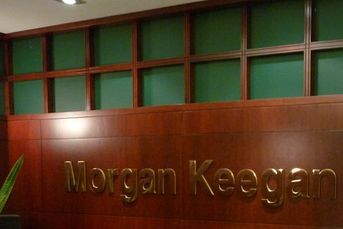Money funds get $38B deposits after debt-ceiling deal

Money-market mutual funds took in $24.9 billion yesterday, bouncing back from their second-worst week of withdrawals, as investors unsettled by the debate over raising the U.S. debt ceiling returned to the market.
Money-market mutual funds took in $24.9 billion yesterday, bouncing back from their second-worst week of withdrawals, as investors unsettled by the debate over raising the U.S. debt ceiling returned to the market.
Investors, lead by institutions, have poured about $38 billion back into money funds in the past three days after pulling $103 billion out of the funds in the week ended Aug. 2, according to research firms Crane Data LLC and iMoneyNet, both based in Westborough, Mass. German equity funds got $400 million in deposits in the week, and emerging-market bond funds took in more than $1 billion for the second time this year, according to Cambridge, Massachusetts-based EPFR Global.
“Its likely just a rebound of the Treasury outflows,” Peter Crane, president of Crane Data, said of the money-fund deposits in a telephone interview today.
The inflows helped push money-market rates, which surged during the debate to raise the federal borrowing cap, below zero percent yesterday. Europe’s sovereign-debt crisis also bolstered U.S. government securities’ appeal as the world’s safest assets. Bank of New York Mellon said yesterday it will charge large clients for excessive cash deposits, to pass on the cost of insuring the deposits.
‘Safe Haven’
Renewed concerns about Europe’s debt problems and slowing growth of the U.S. economy continued to cement emerging-market bond funds’ status as a “safe heaven,” according to EPFR. The funds have taken in money for 19 straight weeks, totaling more than $19 billion this year. German equity funds’ year-to-date intake is more than $16 billion, according to EPFR.
The money-market withdrawals in the previous week, the worst since the bankruptcy of Lehman Brothers Holdings Inc. in September 2008, may have contributed to a flood of cash going into banks, where deposits have been insured without a limit since the 2008 financial crisis.
BNY Mellon said it will charge customers with more than $50 million 13 basis points, or 0.13 percentage point, for “excess” deposits after a flight to safety left the bank with elevated cash levels.
–Bloomberg News–
Learn more about reprints and licensing for this article.







